What’s the inspiration behind Quim?
The inspiration behind Quim was the drive to solve a problem that is deeply personal. We know first hand how much recurring vaginal health issues can affect every aspect of your life, and were inspired to create solutions that worked for us. We’ve had the privilege of sharing those solutions with others, and turns out, they’ve helped many people!
How did you transition from selling software to working in the cannabis industry?
I got started in the cannabis industry in 2015 when I took a job as the Head of Sales at Meadow, a San Francisco-based startup building software for California dispensaries and delivery services. Around the time I started at Meadow, they had just pivoted from being a “grubhub of cannabis” to a SaaS provider, which made my background in tech sales a valuable addition to the team.
I was drawn to the cannabis industry for two main reasons: the first being that I had been a consumer for years and was excited to join an industry that felt personally relevant to my lifestyle habits; the second being that my father had been incarcerated for non-violent cannabis crimes when I was four years old. In joining the cannabis industry at its nascent stage, I saw an opportunity to shape the way the legislation was formed such that small businesses were able to continue operating without risking their families' well-being.
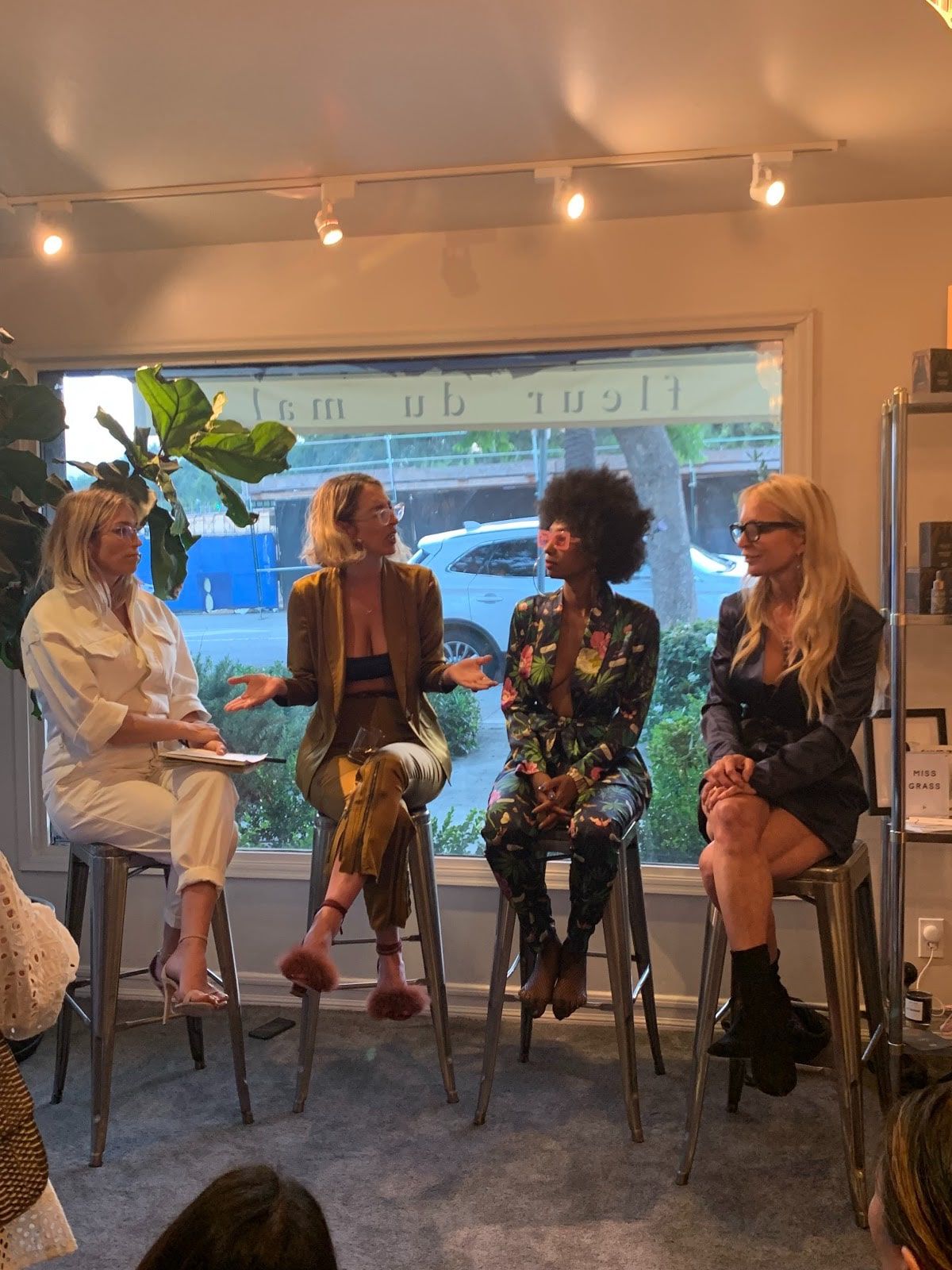 Cyo speaking on a Cannabis and Sexuality panel at with Lizzy Jeff, Dr Jennifer Berman, and Anna Duckworth
Cyo speaking on a Cannabis and Sexuality panel at with Lizzy Jeff, Dr Jennifer Berman, and Anna Duckworth
What would you like to see change within the U.S. regarding the regulation of marijuana?
Cannabis prohibition has deeply racist origins in this country and Black and Brown people have experienced the negative impacts of the War on Drugs exponentially more than their white counterparts. Because of that, I think we have a responsibility to ensure they are not excluded from the opportunities of the emerging legal market. I would like to see mandatory Equity Programs that give priority licensing and business mentorship to people who have been persecuted by the War on Drugs and immediately release anyone who is still serving time for non-violent cannabis offenses with full expungement of their records.
How did you meet your co-founder? How do you work together?
Rachel and I have actually known each other since we were kids, we played soccer together growing up in the Bay Area. Although we never went to the same school, we were always in overlapping social circles and had the same mutual friends. After college, we reconnected through our mutual best friend. I had been casually searching for the perfect business partner ever since I started making vaginal health products, and distinctly remember one night when Rachel had gotten back from traveling and was talking about what she wanted in her next job. Her description resonated with me, and I knew she was the business partner I had been looking for. We truly are yin and yang – the business wouldn’t be where it is today without our complementary skill sets!
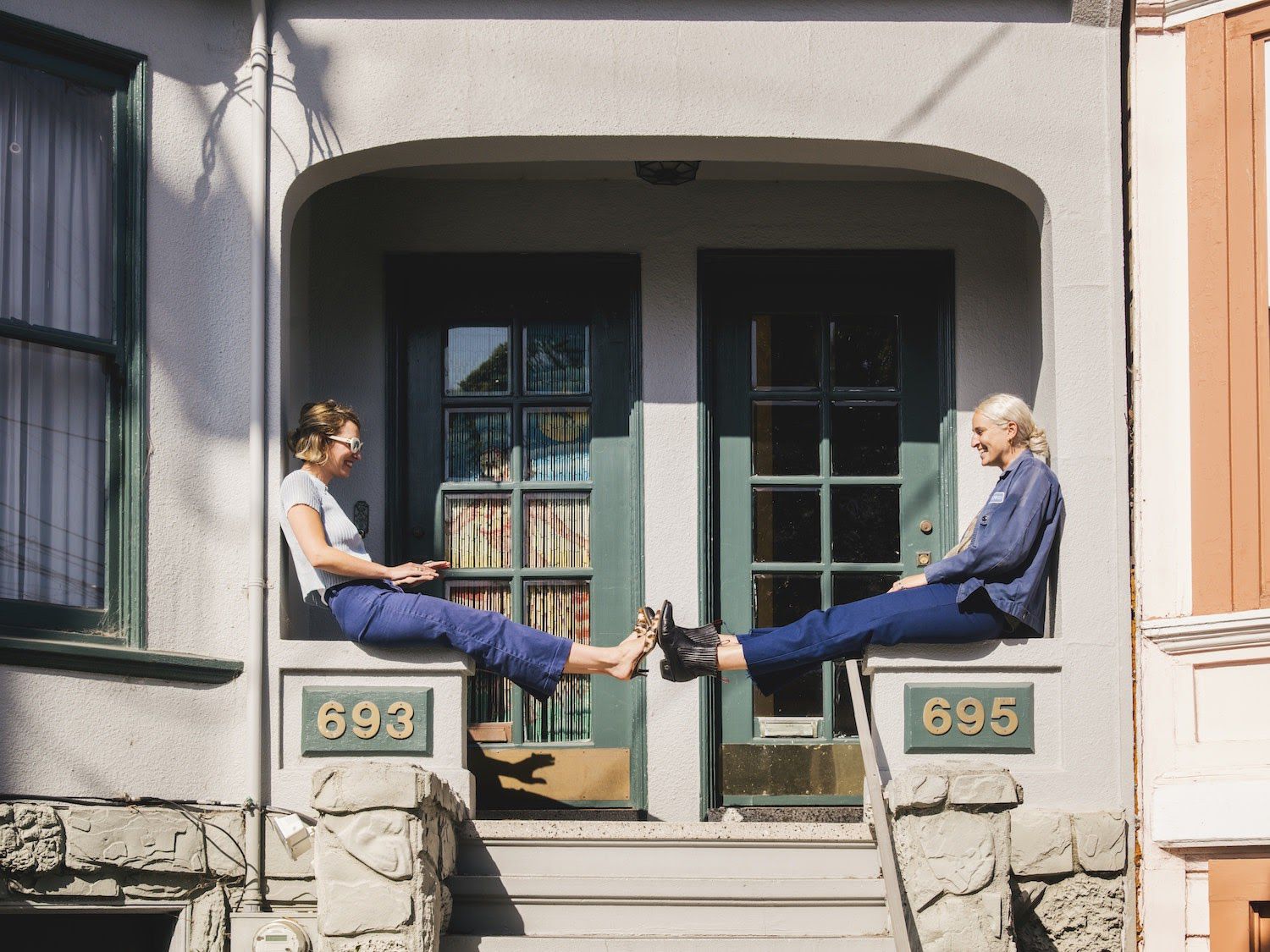 Cyo and her cofounder Rachel
Cyo and her cofounder Rachel
How do you handle risk and competition?
Rachel and I handle risk very differently, which can sometimes pose short-term challenges, but ultimately means that we’re thinking through each move we make very thoroughly. When it comes to competition, we generally feel that there’s enough room in this industry for everyone. If people are making vaginal health products, and working on projects that support vaginal health and wellness, we’re always going to be in support of their efforts. Additionally, we see competition as a validation of this new market and truly believe that the rising tide lifts all ships.
When did you first start to experiment with Quim’s products? What was the initial design/creation process like?
I started making my own vaginal health products in college. After experiencing an 8-year cycle of UTI-yeast infection-UTI-yeast infection and trying every solution under the sun, I knew I had to take matters into my own hands. I was living in a small town in Ohio for college and went down to the local Whole Foods to see what I could find. I had tried tea tree suppositories in the past and knew the ingredient worked for me, so that’s where I started. I began making my own products and found that they really worked.
When I started working in the cannabis industry, I saw a ton of potential to merge two of my passions – vaginal health and cannabis. With cannabis making up the aphrodisiac portion of the formula and tea tree making up the vaginal health portion, I was able to create my first version of what would later be Quim’s OG product, our Intimate Oil (Night Moves).
Once Rachel and I joined forces, we fine-tuned our formulas and launched our initial products. Since then, we’ve further perfected them and launched additional products, but the whole line definitely started with the dream of combining sexual pleasure and vaginal wellness in order to create products that actually work.
You were named one of the Top 100 Most Influential Women in Weed, and were a member of High Times’ Female 50. What were these experiences like?
Such an honor! This industry is built on the backs of farmers, healers, anarchists, and Black and Brown people who have been disproportionately impacted by the War on Drugs. Without them, there would be no green rush or legal cannabis market, so these awards serve as an important reminder to honor the movers and shakers who came before us.
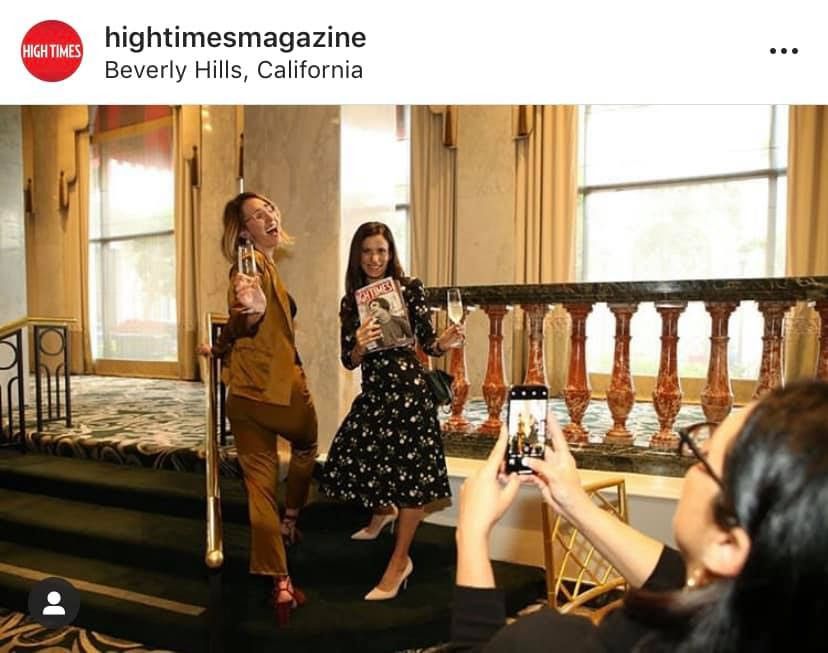 Cyo and her publicist at the High Times Female 50 Awards Ceremony in Beverly Hills
Cyo and her publicist at the High Times Female 50 Awards Ceremony in Beverly Hills
How did these awards impact your company?
Hmmm, that’s a tough one. I don’t think winning these awards has had a direct impact on the company or our growth. That being said, the opportunity to meet and connect with the other women honored with these awards has definitely led to exciting new partnerships and the opportunity to build our professional network.
How has being a female founder influenced your leadership approach?
You know, I wonder how many men get asked how being a male has influenced their leadership approach? Considering the fact that I’ve identified as a woman my entire life, it’s pretty hard to gauge how that specific element of my identity has impacted my leadership style. I would describe my leadership approach as direct, communicative, trusting, and at times, aggressive.
I think it's high time we stopped gendering personality traits because who does that really serve?
What’s been the #1 (or two) top challenges you’ve faced while launching your company?
Two of the biggest challenges we’ve faced since launching our company are fundraising, and regulations around the advertising of CBD and intimate wellness products.
When it comes to fundraising, although we’ve raised a substantial amount of money, we’ve had to fight tooth and nail for every dollar we’ve received. Despite winning multiple high-profile pitch competitions (ArcView and SXSW 2020, to name a few), we’ve learned that accolades are very different from checks written, and there’s a ton of work in between. Being in both the cannabis and sex industries, we’ve often seen investors who are scared to get involved, although we’ve greatly de-risked the opportunity over the past few years.
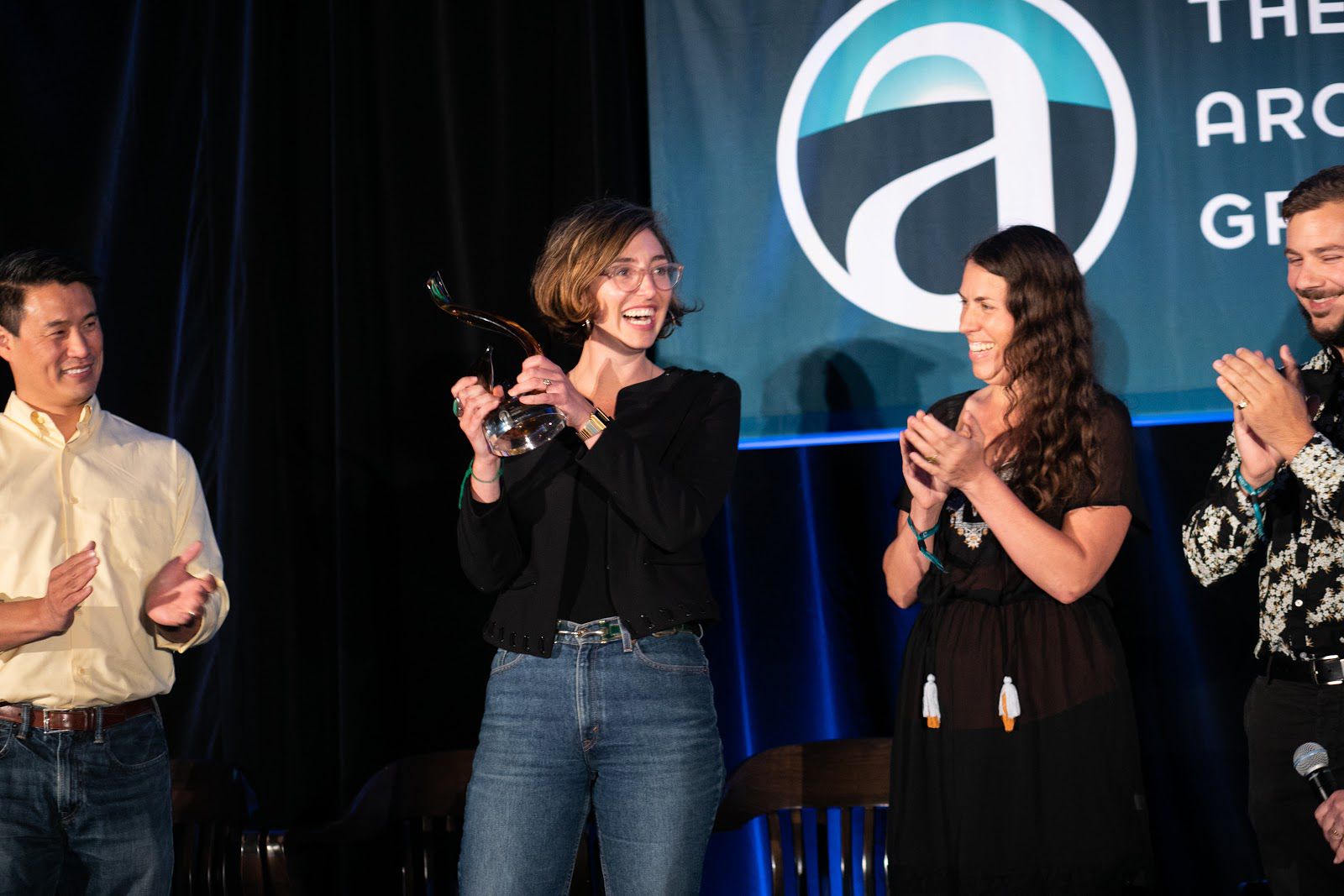 Cyo winning the ArcView pitch competition in 2019
Cyo winning the ArcView pitch competition in 2019
Paid advertising has been another pain point for us, as CBD and intimate wellness products are highly regulated on platforms like Facebook, Instagram and Google. We’re constantly pursuing workarounds in order to run simple ads, so a channel that is usually a no-brainer for D2C businesses has proven to be challenging and very costly for us.
Have you learned anything new or surprising about yourself through this process?
Yes, so much learning all the time! I was originally drawn to my business partner, Rachel, because we have such different energies and skill sets. She has marathon energy and I’m a sprinter. As we deepened our relationship over the past few years, I’ve been surprised by how these differences in our personalities manifest and show up in the business, especially when we’re dealing with acute problem solving situations.
There is a specific type of problem solving, let’s call them “fire extinguishing” challenges that I find hugely invigorating and energy giving – they remind me why I’m doing what I’m doing and what’s at stake if I don’t step up immediately. While those types of challenges are typically super draining for Rachel, she has the stamina and detail-orientedness to maintain energy and focus on long-term, multi-stage, challenges or projects that I find difficult to complete. I continue to be surprised and delighted how symbiotic our contrasting personalities are.
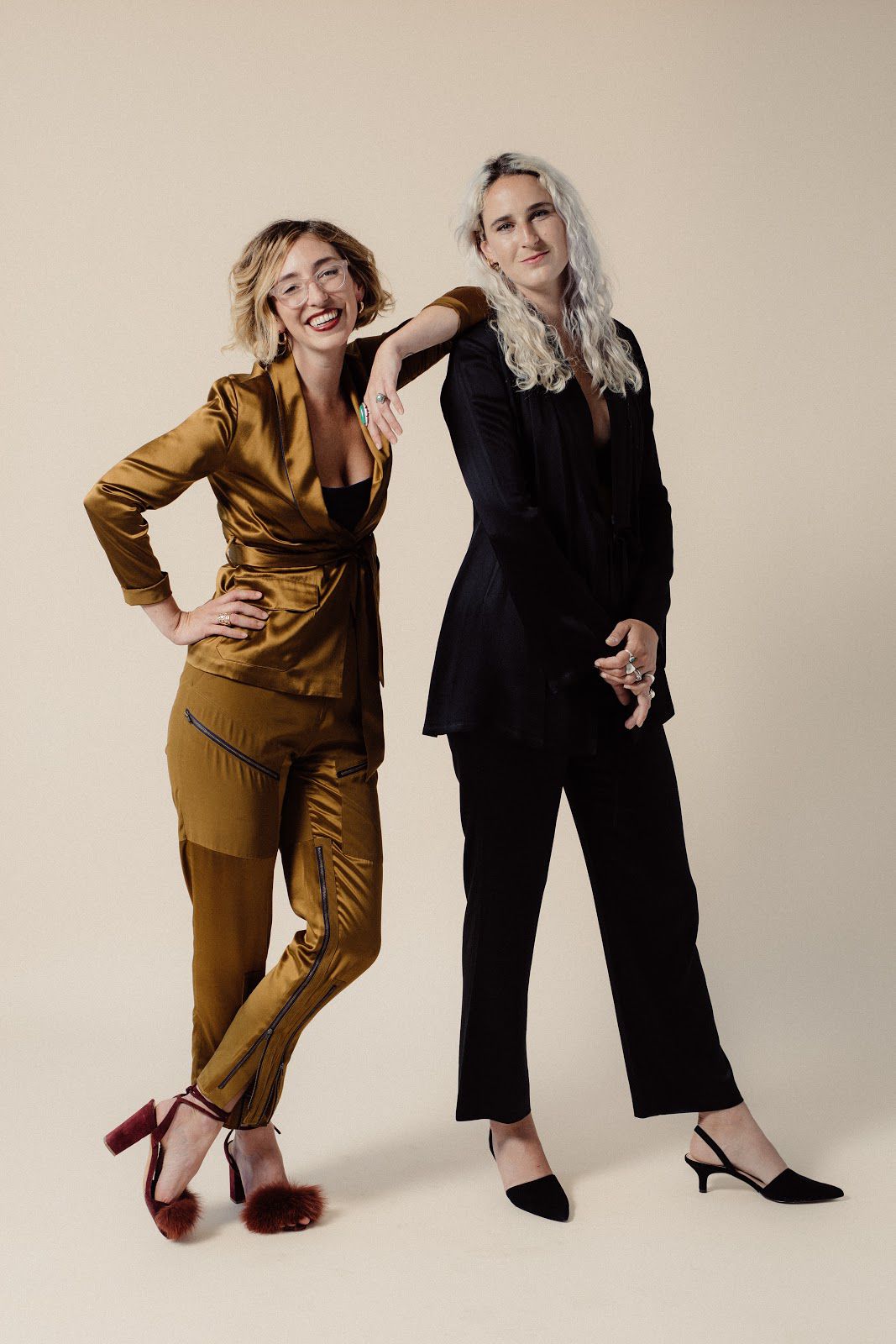 Cyo and Rachel
Cyo and Rachel
What is your favorite part of working at Quim?
Having control of my own destiny. It’s also the scariest part but isn’t that the way it usually goes?
What’s your team culture like?
Our team is like family. As a team of 3 (two co-founders and our first employee, Esha), we’re very close. While we definitely work hard, we also make sure and take care of each other's mental health because we understand that it’s hard to be productive when we’re dealing with big, painful, or distracting stuff on a personal level. We encourage each other to exercise, take breaks during the day, and are always there for each other when something comes up.
Early on, Rachel and I invested in working with a business coach – or business couples counselor as we called her – and it was one of the best decisions we ever made. It taught us so much about how we can optimize our relationship to ensure all parties feel respected, valued, and excited about their work. I think this set a strong foundation for building a company culture that understands that compassion and communication are not detrimental to profits, but can actually support their growth in sustainable ways.
 The Quim team at their holiday ice skating party last year
The Quim team at their holiday ice skating party last year
What is your superpower?
Working a room. It’s the thing I’ve missed the most while being in quarantine.
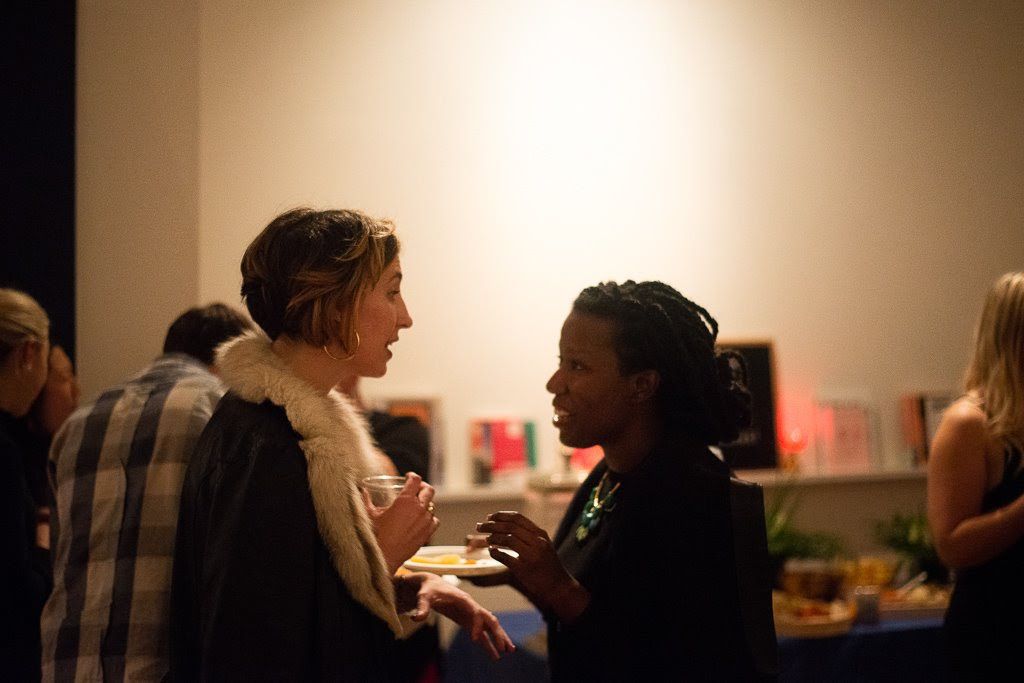 Cyo at an event before the pandemic
Cyo at an event before the pandemic
What’s your kryptonite?
Spiraling into Celebrity Roast videos at 3pm. My favorite one is the roast of James Franco.
Do you have any unusual routines or habits?
Every morning my fiancé brings me what we call “my royal levee,” which is normally a cup of coffee but sometimes a cup of coffee and breakfast, which I consume in bed while reading whatever book is currently on my nightstand. I do this for about an hour before checking my phone and getting into my work around 8:30 or 9 am.
For all your history nuts out there, a “levee” from the French verb lever, to rise, is traditionally a daily moment of intimacy wherein a monarch or leader is woken up and made ready for the day by his/her most honored subjects. For example, Louis XIV was woken up every morning by his “nurse” with a sweet kiss on the forehead – super weird, but I don’t hate it.
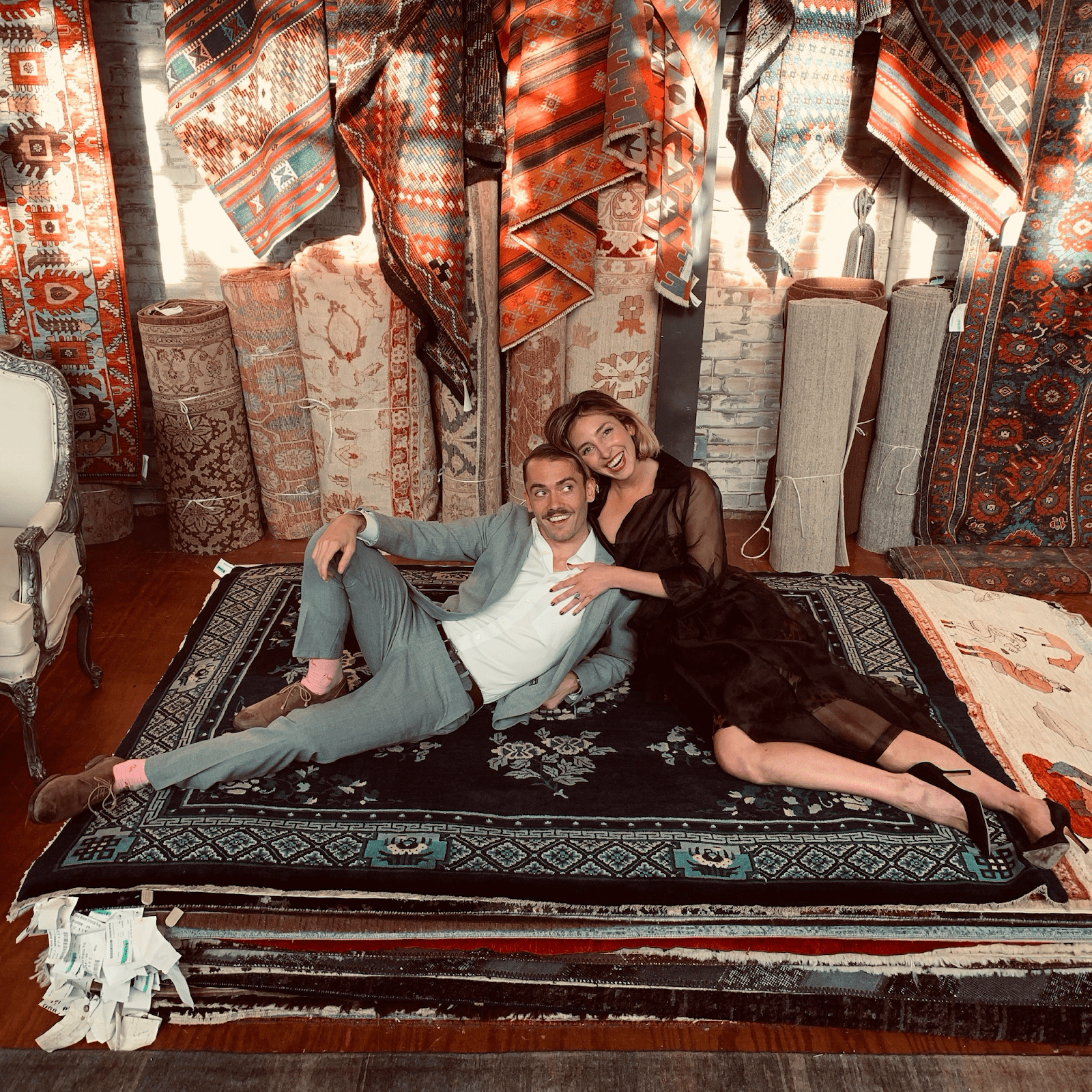 Cyo and her fiance
Cyo and her fiance
Do you have any other hobbies/things you like to do in your spare time?
Reading and swimming in natural bodies of water are my two favorite activities, other than spending quality time with friends and loved ones. I’ve also recently learned how to needlepoint and have found it an incredibly soothing salve to ease the stress of the news cycle.
 Cyo taking a fresh water plunge!
Cyo taking a fresh water plunge!
Are there any apps or gadgets that you can’t live without?
I’m obsessed with my Shakti Mat. It’s crazy painful at first and then after like 10 minutes you feel a wave of warmth move through you and it's oh-so-soothing. As far as apps go, I spend a lot of time on Trulia looking at houses because I’ve been moving from Airbnb to Airbnb every month since June and I’m excited to settle down in my own home.
Do you have a(ny) mentor(s)? If so, what have they taught you?
I’m incredibly lucky to have received mentorship from so many people in my life; from my mother to my water polo coach and history teacher (Clarke Weatherspoon) to my bosses at the first tech company I worked at (Matt Roche, Chris Duskin, and Majid Karimi) to my colleagues in the cannabis industry like Christine de la Rosa and Rosie Mattio. In their own ways, each of them modeled what I think of as the two biggest determinators of personal/professional success: grit and an understanding that the things that make us different or weird are exactly the things that give us a unique perspective – and often competitive advantage – on problem solving.
Any advice for women looking to start their own company?
My advice would be the same for women, men, and non-binary folks wanting to start their own company; find a way to solve a problem that you care deeply about. Share that solution with friends and family and see if it helps them. Starting and running a company is a lot less glamorous than it sounds and if you’re not passionate about the solution your company is providing you’ll inevitably lose steam when the going gets tough, and it always does.
What keeps me motivated on the days where it seems like everything is going wrong are the messages from customers sharing their positive (and sometimes even life-changing) experiences with our products.


 Oops! We couldn’t find any results...
Oops! We couldn’t find any results...





